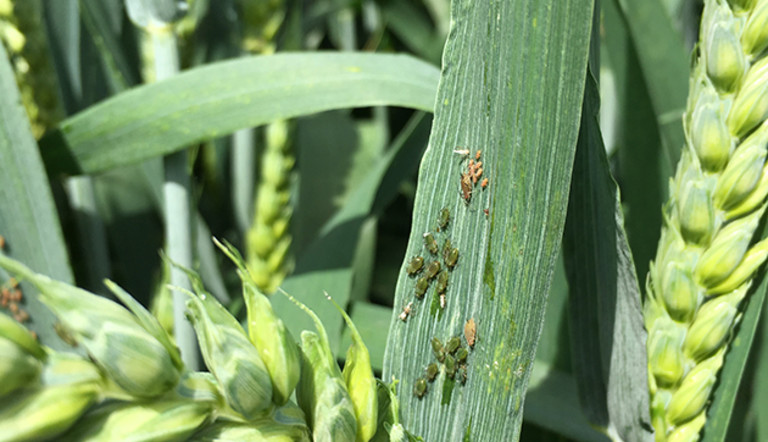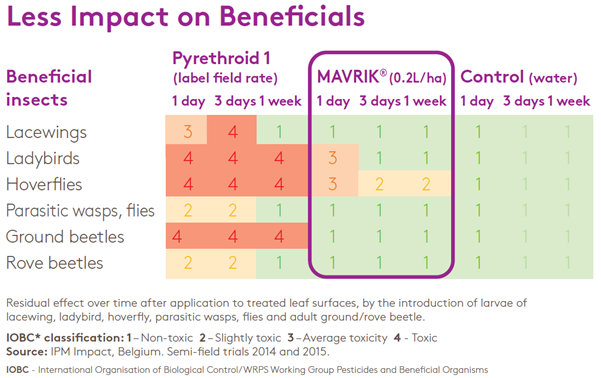
Safeguarding beneficials to control cereal pests

Therefore, as temperatures begin to rise and insect activity increases, regular crop inspections will be needed to determine if and when pest thresholds have been reached: if thresholds subsequently dictate that an insecticide is needed, and a pyrethroid is required, care should be taken to select one which has a reduced impact on populations of advantageous predators such as lacewings, ladybirds, hoverflies and parasitic wasps and flies.
One such product is MAVRIK (240 g/litre tau-fluvalinate) which not only provides fast-acting contact control of aphids in cereals, but has also been proven to have a lower residual impact on beneficial insects compared to other pyrethroids. MAVRIK is also stable at high temperatures, a characteristic which ensures insect control remains viable if the mercury continues to rise.

Compared to other pyrethroid-based insecticides, MAVRIK has less residual effect on beneficial insects, meaning they are able to continue to predate on crop pests
MAVRIK’s reduced residual toxicity enables advantageous insects to recover more quickly after crops have been sprayed, therefore ensuring there’s a strong population of predators ready and able to contribute to the control of any subsequent aphid influxes.
MAVRIK (240 g/litre tau-fluvalinate) is a highly active and novel pyrethroid which has a reduced impact on beneficial organisms compared to other pyrethroid insecticides and which provides effective, fast-acting contact control of aphids in cereals. It can also be used to control pollen beetle and cabbage seed weevil in oilseed rape.
